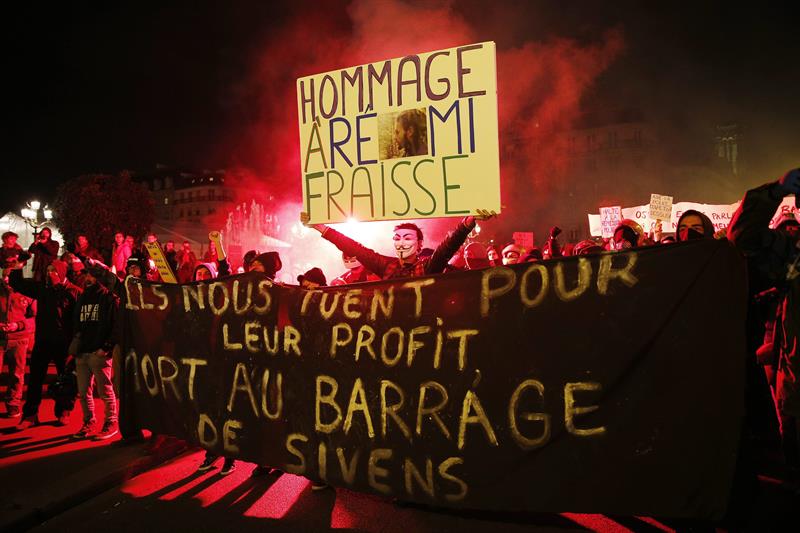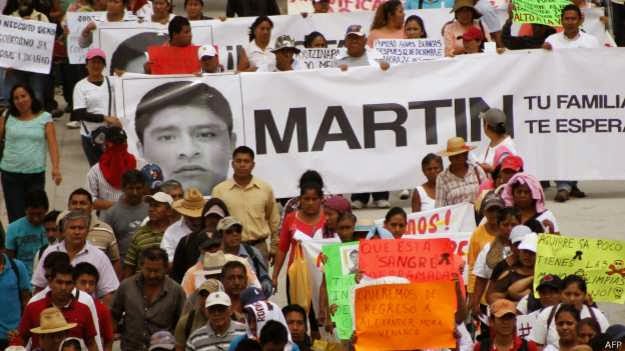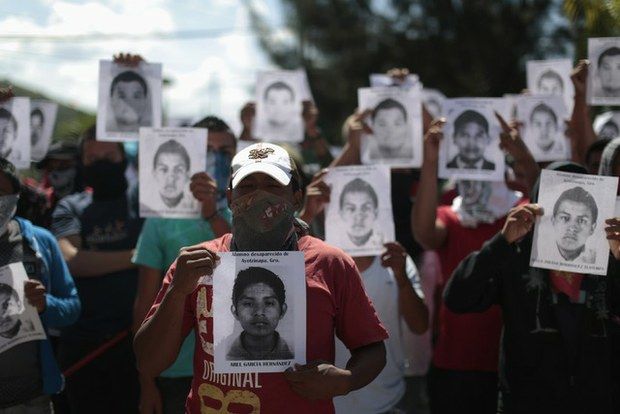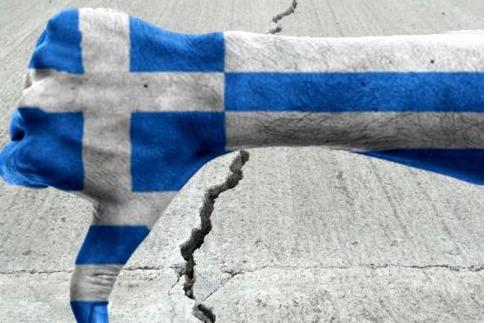Elections in Greece
A forceful repudiation of the pro-austerity parties
17/05/2012
By Alejandra Ríos
The outcome of the May 6 elections in Greece represented an historic debacle for PASOK (the Panhellenic Socialist Movement, a social-democratic tendency) and (center-right) New Democracy, the parties responsible for imposing the austerity plans, revealing a broad repudiation of the austerity policy dictated by the troika formed by the European Commission, the European Central Bank and the IMF. This real fiasco casts doubt upon the continuation of the austerity policies in Greece, with consequences for the entire eurozone.
New Democracy (ND) and PASOK, that had alternated in power in Greece since the fall of the dictatorship in 1974, went from getting 88% of the votes to 30%. Taken individually, New Democracy came out first with only 18.9% of the votes, and PASOK was moved to third place with 13.2% of the votes. This enormous loss of prestige of the traditional parties was mainly capitalized on by the Radical Left Coalition (SYRIZA), a coalition of reformist left-wing parties, that emerged as a second force in the elections, on getting 16.7% of the votes (52 seats), compared with the 4.6% that it had gotten in 2009. The Communist Party of Greece (KKE) slightly increased its vote from 7.5% to 8.5% and its parliamentary presence (26 seats). The Democratic Left (a break-away from SYRIZA) reached 6% of the votes (19 seats), and Antarsya (a coalition of far left groups and anti-capitalist formations), although it only got 1.1% of the votes and therefore did not gain access to Parliament, notably increased its vote compared to the previous election. Taken as a whole, it is the best vote for the organizations to the left of PASOK since 1958.
According to the Greek electoral system, the party with the largest quantity of votes gets 50 extra seats and the mandate to form a coalition government. In spite of the “extra seats,” New Democracy did not achieve that. In view of this failure, their leader, Antonis Samaras, left the negotiations and left that responsibility in the hands of SYRIZA. It is very likely that SYRIZA will also fail, especially after the Communist Party of Greece rejected their appeal, for which reason it would be up to PASOK to try to form a government. If that is not achieved, the most likely scenario is that new elections will be called in mid-June. Under these circumstances, any government that the parties that adhere to the EU austerity memorandum try to form, would be very weak and scarcely have legitimacy. The situation that has opened up in Greece is part of a more widespread tendency of repudiation of the parties, whether conservative or social democratic, that have been carrying out extremely harsh austerity policies, from the government, creating an unprecedented social crisis.
The limits of Syriza’s reformist program
The big novelty of these elections was the movement of votes to the SYRIZA coalition, a reformist tendency of the left, that managed to capitalize on the discontent and anger at the traditional parties’ austerity plans, by appearing with a program of rejection of the memorandum signed with the European and international organizations. Its leader, Alexis Tsipras, proposed the cancellation of the austerity programs and other demands, like auditing the Greek debt and nationalization of the banks. But Syriza is not proposing attacking the interests of the monopolies and the big Greek capitalists, that, together with the “troika,” have been imposing austerity; rather, its program is negotiating the adjustment with the EU institutions, respecting capitalist property. Its platform does not dispute the totally anti-democratic and imperialist structure of the EU either.
For its part, the Communist Party of Greece, KKE, that has a presence in union organizations of groups from the workers’ movement, especially in the PAME union federation, although it has a more leftist discourse than Syriza and has rejected its offer to form a government based on its rejection of the EU, combines electioneering and a program of leaving the euro and the EU in a reformist manner, with a self-proclaimed sectarian policy, refusing to promote the workers’ united front to defeat the policy of the official union bureaucracy, of calling for days of struggle, without any continuity, and to prepare the conditions for the political general strike, that will open up the perspective of a workers’ solution to the crisis.
Although they managed to capitalize on the anger against the austerity plans, their programs do not measure up to a progressive solution that the workers and the impoverished urban masses need.
The neo-Nazi extreme right wing
The enormous social and political polarization was also expressed in the alarming 6.92% (21 seats) that the neo-Nazi party “Golden Dawn” got. This fascist group, that has shock troops and paramilitary characteristics, carried out its election campaign with an openly anti-immigrant program, based on nationalist demagogy.
Its main leader, Nikolaos Michaloliakos, emboldened by the election result, stated that “Greece is only the beginning.... The main task is getting rid of all the illegal immigrants” and added, “The victory is dedicated to all the brave youths who wear black t-shirts with the name Golden Dawn in white.” With a quasi-swastika as a badge, this party intends to “protect the border” and put mines along the borders to prevent the entry of immigrants. The interference of international organizations and the technocrats and institutions of the EU in Greek politics provides the breeding ground for the emergence of discourses and xenophobic forces of the extreme right. If the trend is towards a worsening of the crisis and of greater demands for the masses, it is very likely that these discourses will find a louder echo, and even physical attacks against immigrant workers cannot be ruled out. The furious growth of Golden Dawn urgently poses the need for workers’ and leftist organizations to get organized, to confront and defeat this threat.
For a workers’ solution
The enormous resistance and energy of the Greek young people and workers, who, in the last year and a half, have led 17 general strikes, cannot be handed over to those who are going to continue negotiating the adjustments with the EU and the IMF. The official leaderships of the workers’ movement and the reformist parties have, up to now, prevented the workers’ and the resistance movement from turning into an open struggle against the power of the capitalists and their state. For this, a program is needed that measures up to the offensive and the capitalist crisis, that will propose emergency measures, like the nullification of all the austerity programs and the cancellation of the debt with transitional measures, like the expropriation of banking without compensation and under workers’ control, distribution of the hours of work, and the expropriation of the big capitalists and having them function under workers’ control; in short, a program that will lead the working class to power, in alliance with the urban poor, and against the Europe of capital and the big monopolies, and against the xenophobic and nationalist variants; a program that will pose the need to struggle for a Federation of United Socialist States of Europe.
-----------------------------------------------
Keys
What is SYRIZA? The Radical Left Coalition (SYRIZA, because of its acronym in Greek) is an electoral group of ten parties that was formed in 2004, whose main organization is Synapsismos (Coalition of the Left, the Movements and Ecology). It is part of the group European Left, an association of left-reformist parties, among which are the Communist Party of France, Izquierda Unida of Spain, Die Linke of Germany and the Bloco de Esquerda of Portugal.
Thursday, May 10, 2012








![Declaration of the Movimiento de los Trabajadores Socialistas [MTS] facing the brutal murder and disappearance of the normalistas students of Ayotzinapa](http://www.ft-ci.org/IMG/arton8590.jpg?1687978277)

















